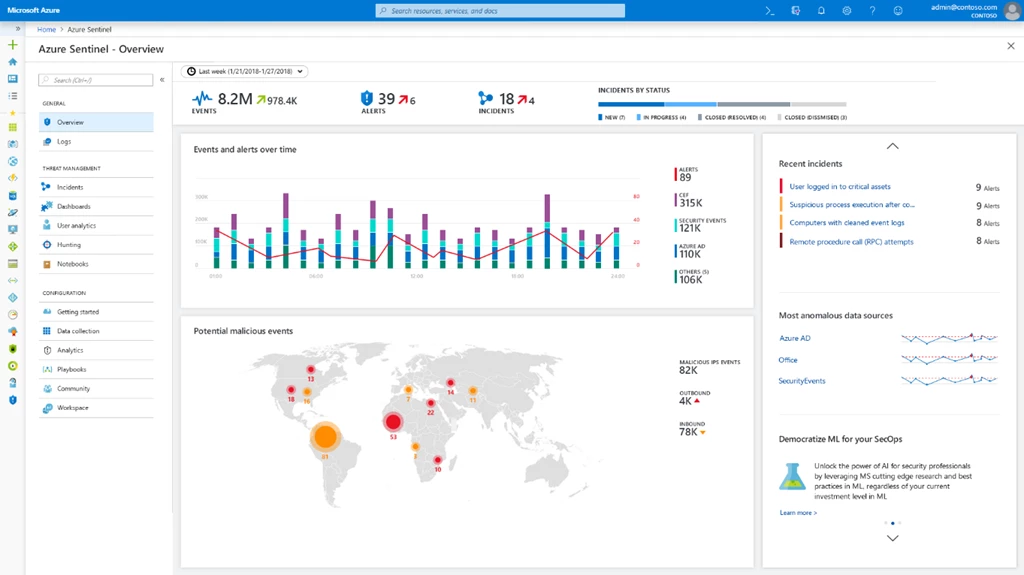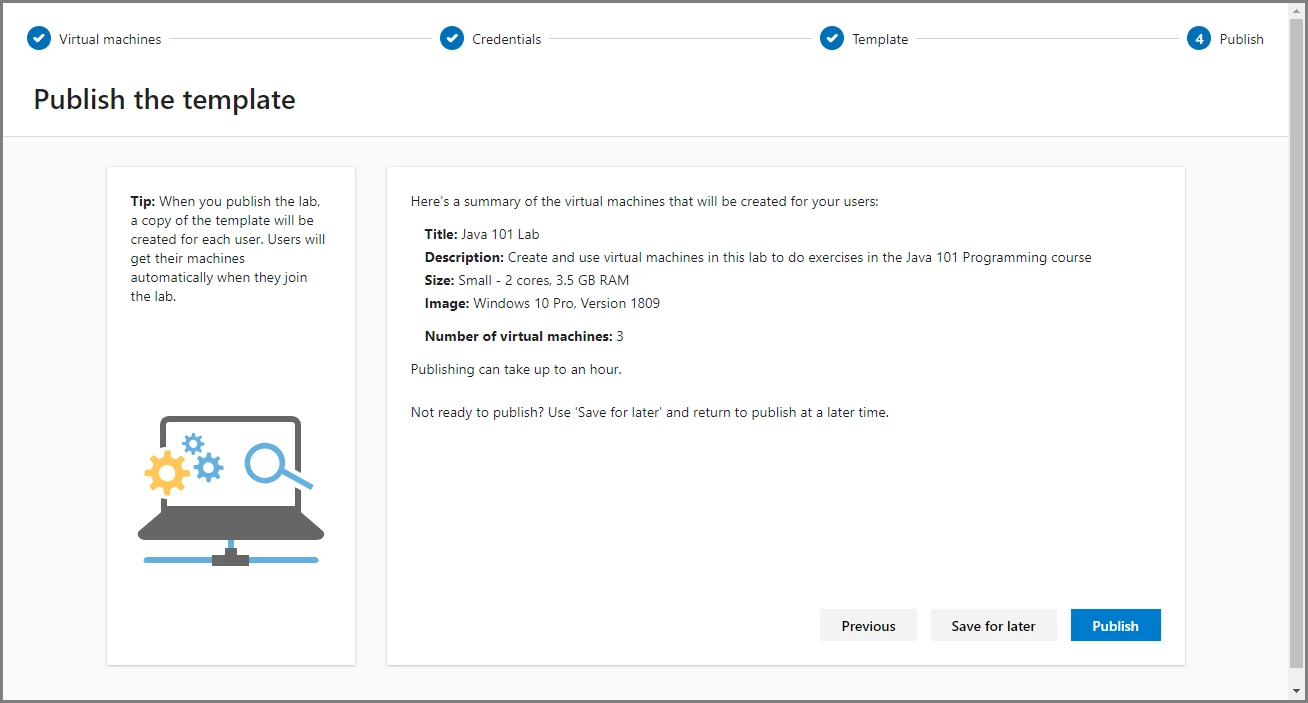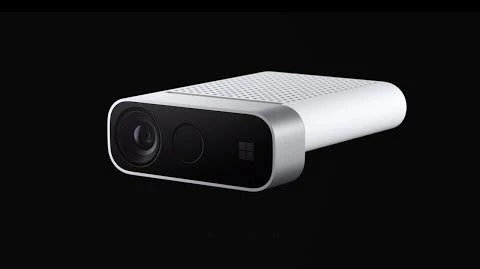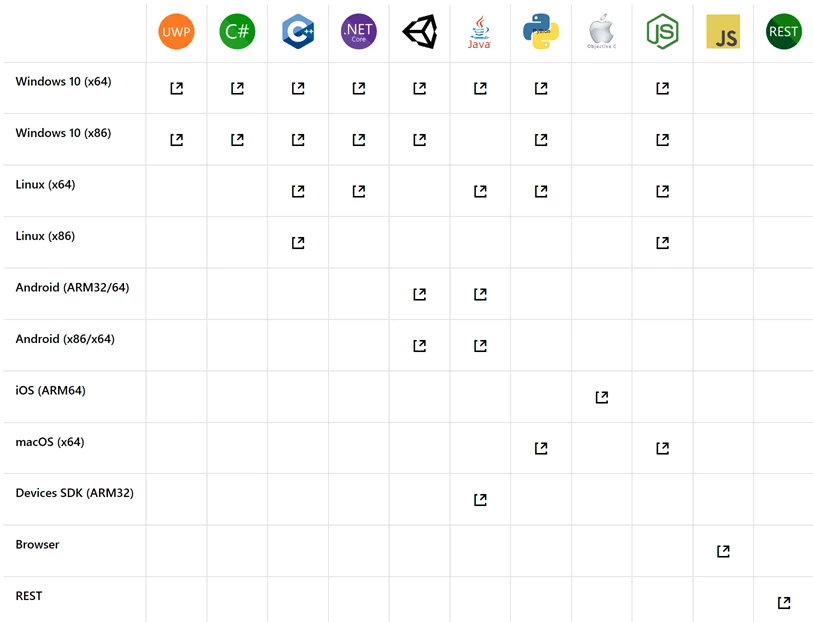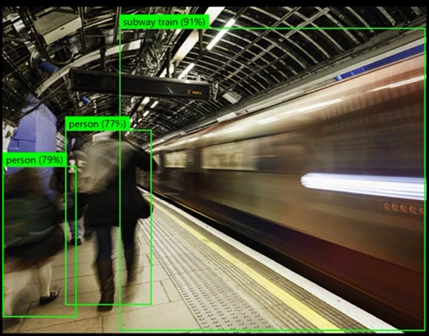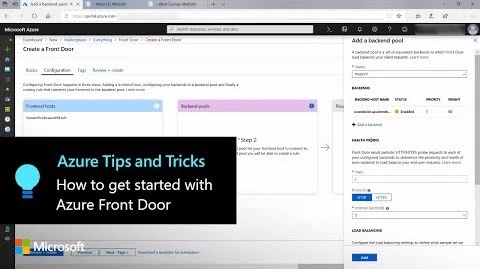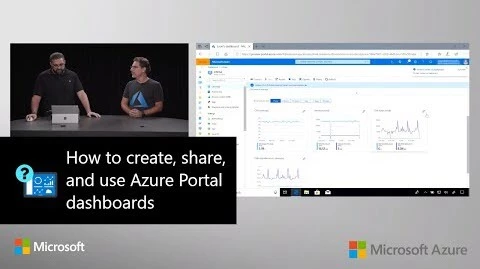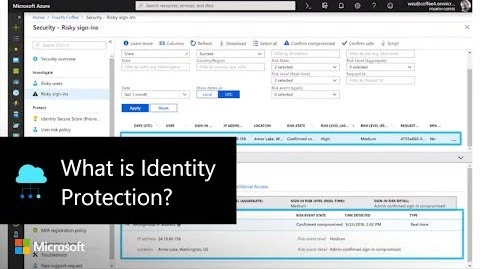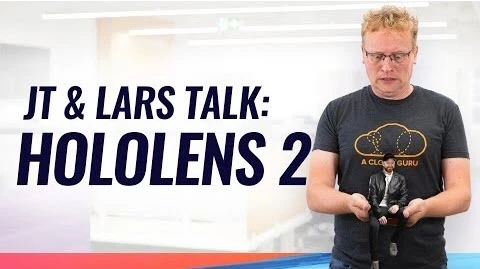Now in preview
Announcing Azure Spatial Anchors for collaborative, cross-platform mixed reality apps
Azure Spatial Anchors, a mixed reality service that enables you to build a new generation of mixed reality applications that are collaborative, cross-platform, and spatially aware, is now in public preview. Across industries, developers and businesses are using mixed reality in their daily workflows and giving us feedback on what they’d like to see next. When we look across all the mixed reality solutions that customers have built, two things stand out: they want to easily share their mixed reality experiences and place applications in the context of the real world. Learn about two application patterns gaining momentum across industries, and how Azure Spatial Anchors can help you deliver them with greater ease and speed.
Introducing Microsoft Azure Sentinel, intelligent security analytics for your entire enterprise
Microsoft Azure Sentinel is available in preview in the Azure portal. Security can be a never-ending saga—a chronicle of increasingly sophisticated attacks, volumes of alerts, and long resolution timeframes where today’s Security Information and Event Management (SIEM) products can’t keep pace. We’ve reimagined a new cloud-native SIEM tool called Microsoft Azure Sentinel to provide intelligent security analytics at cloud scale while making it easy to collect security data across your entire hybrid organization; from devices, to users, to apps, to servers on any cloud.
Announcing Azure Monitor AIOps Alerts with Dynamic Thresholds
Metric Alerts with Dynamic Thresholds is now available in public preview. Dynamic Thresholds significantly enhance Azure Monitor Metric Alerts so you no longer need to manually identify and set thresholds. The alert rule now leverages advanced machine learning (ML) capabilities to learn metrics’ historical behavior while identifying patterns and anomalies that indicate possible service issues. Metric Alerts with Dynamic Threshold is currently available for free during the public preview.
Working with AZCopy 10 and Azure Storage Blob Access Tiers
AzCopy v10 is now available in public preview. Azure Blob Storage offers three different access tiers for saving money depending on storage requirements. Get high-performance, reliable data transfers that work with mixed access tiers inside an Azure storage account using the latest AzCopy, a console tool to help with uploading blobs to Azure Storage.
Announcing Azure Integration Service Environment for Logic Apps
Integrated Service Environment is now available in every region for which Logic Apps is currently available. In critical business scenarios, you need to have the confidence that your data is flowing between all the moving parts. The core Logic Apps offering is a multi-faceted service for integrating between data sources and services, but sometimes you also need to have a dedicated service to ensure that your integration processes are as performant as can be. That’s why we developed the Integration Service Environment (ISE), a fully isolated and dedicated environment for all enterprise-scale integration needs. Integration Service Environments are available in every region that Logic Apps is currently available in except for West Central US, Brazil South and Canada East.
Also available in preview
- Public preview: Azure Log Analytics is available in new regions in Australia
- Azure Container Registry firewall rules and Virtual Network (in preview)
- Azure App Service – WildFly on Linux is in preview
- Code-free data transformation at scale using Azure Data Factory
- Data Migration Assistant support for Cassandra to Azure Cosmos DB assessment
- Azure Maps events in Azure Event Grid
- Azure SQL DB as reference data input
- Machine learning-based anomaly detection functions in Azure Stream Analytics (preview)
- Azure DevOps CLI preview and feature updates in Pipelines – Sprint 148 Update
Now generally available
Announcing the general availability of Java support in Azure Functions
Announcing the general availability of Java support in Azure Functions 2.0; enabling a wide range of options for you to build and run your Java apps in the 50+ regions offered by Azure around the world. Azure Functions provides a productive programming model based on triggers and bindings for accelerated development and serverless hosting of event-driven applications. It enables developers to build apps using the platform (Windows, Mac, or Linux), programming languages, and tools of their choice; with an end-to-end developer experience that spans from building and debugging locally, to deploying and monitoring in the cloud.
Announcing the general availability of Azure Lab Services
Announcing the general availability of Azure Lab Services – computer labs in the cloud. Provisioning and managing a lab’s underlying infrastructure makes preparing the right lab experience for your users difficult. With Azure Lab Services, you can easily set up and provide on-demand access to preconfigured virtual machines (VMs) to teach a class, train professionals, run hackathons or hands-on labs, and more. Azure Lab Services GA pricing goes into effect on May 1, 2019. Learn more about using Azure Lab Services in this post from the Premier Developer blog: Azure Lab services scheduling now Available.
Running Cognitive Services on Azure IoT Edge
Announcing support for running Azure Cognitive Services containers for Text Analytics and Language Understanding containers on edge devices with Azure IoT Edge so you can run workloads locally. Whether you don’t have a reliable internet connection, or want to save on bandwidth cost, have super low latency requirements, or are dealing with sensitive data that needs to be analyzed on-site, Azure IoT Edge with the Cognitive Services containers gives you consistency with the cloud. These container images are directly available to try as IoT Edge modules on the Azure Marketplace.
Also generally available
- Azure Database for MySQL: Read replica now generally available
- Virtual network service endpoints for Azure Database for MariaDB are now generally available
- New features are now generally available in Event Grid
- General availability: Azure Availability Zones in East US
- General availability: Global VNet Peering in Azure Government regions
Events
MWC 2019: Azure IoT customers, partners accelerate innovation from cloud to edge
The Internet of Things (IoT) has expanded the world of computing far beyond mobile and PC, bringing a new and ever-growing class of cloud-connected devices that is on track to reach 20 billion devices by 2020. Announcing new IoT partnerships for global-scale IoT solutions with new devices and cloud services that further increase the strategic value of IoT.
Learn more in this post by Julia White, Corporate Vice President, Microsoft Azure on the Official Microsoft Blog: Microsoft at MWC Barcelona: Introducing Microsoft HoloLens 2.
News and updates
Instantly restore your Azure Virtual Machines using Azure Backup
Azure Backup Instant Restore capability for Azure Virtual Machines (VMs) is now available. If you use Azure Backup, Instant Restore helps you quickly recover VMs from the snapshots stored together with the disks. In addition, you get complete flexibility in configuring the retention range of snapshots at the backup policy level depending on the requirements and criticality of the virtual machines associated; giving users more granular control over their resources. We are enabling and rolling out this experience on a region-by-region basis.
Cognitive Services Speech SDK 1.3 – February update
Developers can now access the latest Cognitive Services Speech SDK which now supports: selection of the input microphone through the AudioConfig class, expanded support for Debian 9, Unity in C# (beta) on Windows x86 and x64 (desktop or Universal Windows Platform applications), and Android (ARM32/64, x86), and more. Read about all the updates made to the Cognitive Services Speech SDK made in February.
Improving the TypeScript support in Azure Functions
TypeScript is becoming increasingly popular in the JavaScript community. Announcing a set of tooling improvements for TypeScript support in Azure Functions so you can more easily develop with TypeScript when building your event-driven applications. With this set of changes to the Azure Functions Core Tools and the Azure Functions Extension for Visual Studio Code, Azure Functions now supports TypeScript out of the box. Included with these changes are a set of templates for TypeScript, type definitions, and npm scripts.
New device modeling experience in Azure IoT Central
Optimize your device workflow for easier management and clarity. Introducing a new “Device Templates” navigation tab that replaces the existing “Application Builder” tab, as well as updated patterns for viewing or editing device templates. We’ve begun a flighted rollout of a new the device modeling.
Azure Data Factory updates
- Monitor Azure Data Factory pipelines by using Azure Monitor and Log Analytics
- Azure Data Factory visual tools integrated with GitHub
- Self-hosted IR sharing across multiple data factories
- Parameterize connections to your data stores in Azure Data Factory
- Linked Resource Manager template support available for CI/CD in your data factories
- Azure Functions now supported as a step in Azure Data Factory pipelines
- Create alerts to proactively monitor your data factory pipelines
- Enhanced monitoring capabilities and tags/annotations in Azure Data Factory
- Support for Enterprise Security Package–enabled HDInsight clusters in Azure Data Factory
Additional news and updates
- FastTrack for Azure
- Global VNet Peering now supports Standard Load Balancer
- Database rename is now supported in Azure SQL Database Managed Instance
- Remove Application Insights connections via PowerShell
- Instantly provision GraphQL on Azure with Hasura and Azure Database for PostgreSQL
- Azure Database for MySQL and PostgreSQL: New compute options are now available
- Azure Policy non-compliance reasoning and change history features
- Azure Blockchain: Updated Hyperledger Fabric template 1.3 now available
- M-series virtual machines (VMs) are now available in the Korea South region
- Azure Event Grid Availability in Azure US Gov regions
Technical content
Five tips for securing your IaaS workloads
Implementing IaaS security best practices is an essential step to securing your IaaS resources. Get specific recommendations for improving your IaaS security posture, focus on data protection, strengthen network security, and streamline security management including threat protection. Read the Azure Government Security documentation to understand features and variations for Azure Government.
Azure Stack laaS – part two
Every organization has a unique journey to the cloud, based on the organization’s history, business specifics, culture, and maybe most importantly, their starting point. Typically in your migration journey, you use a mixture of tools, so you need to understand the options available in order to select the right tool for the specific workloads. The Azure migration center provides a good model and helpful resources to get you started on your migration to the cloud and to make sure you can create the proper frame for your migration.
AZX.ms – A Collection of Azure CLI Recipes
Simplify your Azure development with a collection of Azure CLI scripts accessible right at your fingertips.
Latest enhancements now available for Cognitive Services’ Computer Vision
With the latest enhancements to Cognitive Services’ Computer Vision service, you can extract insights, unlock new workflows, and easily customize and deploy your model without requiring machine-learning expertise.
Creating IoT applications with Azure Database for PostgreSQL
There are numerous IoT use cases in different industries with common categories like predictive maintenance, connected vehicles, anomaly detection, asset monitoring, and many others. Azure IoT is a complete stack of IoT solutions; a collection of Microsoft managed cloud services that connect, monitor, and control billions of IoT assets. See how to implement an end-to-end Azure IoT solution and use Azure Database for PostgreSQL to store IoT event data in the JSONB format.
3 Reasons To Add Deep Learning to Your Time-Series Toolkit
In this article, Francesca shares 3-5 lessons learned while building neural networks for time series (leading up to 2-day trainings at AI Conference NYC and Strata Data Conference in San Francisco). With clear explanations, standard Python libraries, readers discovers tips and tricks to develop deep learning models for their own time series forecasting projects.
Understanding routing in istio
This is the first in a series of blog posts that will go into depth on how to use popular OSS on top of Azure Kubernetes service. In this post, Scott Coulton runs through how to install istio with Helm and how to deploy two versions of the same application and route traffic on weight (percentage). The post also contains all of the source code and a demo application so you can go and test the topic out for yourself.
How to Lock Azure Resources to Prevent Modification or Deletion
This article demonstrates how to configure Azure Resource Locking using Azure Role Based Access Control (RBAC) enables us to restrict access to resources and resource actions, which helps prevent inadvertent resource deletion and modification.
Running Micro Focus Enterprise Server 4.0 in a Docker Container in Azure
Running a Docker container in Micro Focus Enterprise Server 4.0 is new and provides portability, performance, agility, and isolation. See how to effectively run and manage a mainframe CICS application in a Docker Container using the Windows 2016 Datacenter and the Containers VM now available from the Azure Marketplace.
Exploring Feature Weights using R and Azure Machine Learning Studio
Suppose we have to design a black box that displays a “thumbs up” or “thumbs down” depending on hundreds of different combinations of inputs. This post describes how to conduct exploratory data analysis using R and Azure Machine Learning Studio to train a “black-box” model in a case when it is difficult to explain how the model characterizes the relationship between the features and the target variable.
Intro to Microsoft Azure Resource Manager Templates
Cloud Advocate, Jay Gordon gives you an introduction to Azure Resource Manager Templates and how to begin using them with Azure Cloud Shell. You’ll see the number of options available to quickly create Azure resources.
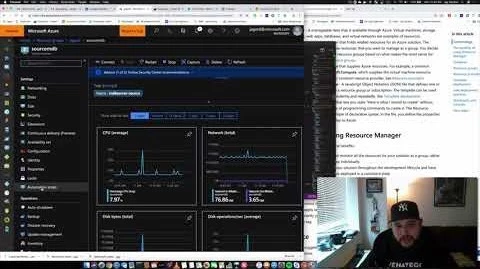
Additional technical content
- Introduction to DevOps for Dynamics 365 Customer Engagement using YAML Based Azure Pipelines
- How to Lock Azure Resources to Prevent Modification or Deletion
- Xamarin and Azure Office Hours Recap from December 2018 and January 2019
- Azure Development Community – Same Great Blog… NEW HOME!
- Lesson Learned #73: Azure Database for MySQL – CONVERT_TZ returns null
Azure shows
Episode 268 – ExpressRoute Roadmap | The Azure Podcast
Paresh Mundade, a Senior PM in the Azure ExpressRoute team, gives the guys an update on the service and a glimpse into the roadmap of planned features.
Azure Cosmos DB update: SDKs, CORS, multi-region strong consistency, and more | Azure Friday
Learn about the new SDKs for Azure Cosmos DB with the JavaScript SDK used as an example as well as learn about CORS (Cross-Origin Resource Sharing) via a simple JavaScript app for demonstration. See a new, low-cost database offer in the Azure portal, watch an Azure DevOps build task setup, get some cost saving tips, and learn about support for multi-region strong consistency.
An intro to Azure Cosmos DB .NET SDK 3.0 | Azure Friday
Learn about the new improvements for Azure Cosmos DB SDKs, including the new, idiomatic .NET SDK with a friendlier, more intuitive programming model, better testability, better performance, .NET Standard 2.0 support. Plus, it is now open sourced.
Azure Maps – The Microsoft Azure Enterprise Location Platform | Internet of Things Show
Azure Maps is the de facto location intelligence platform natively hosted in the Microsoft Azure cloud. Chris Pendleton, PM Lead for the service, gives us an overview of what Azure Maps is, who uses Azure Maps, how Azure Maps is being used across our customer base, and how you can start using Azure Maps today.
How to get started with Azure Front Door | Azure Tips and Tricks
learn how to get started with Azure Front Door. Azure Front Door easily makes your applications globally available and secure.
How to create, share, and use Azure Portal dashboards | Azure Portal Series
In this video of the Azure Portal “How To” series, learn how to easily create, share, and use dashboards in the Azure Portal. Learn more about the series: Introducing the Azure portal “how to” video series
What is Identity Protection? | Azure Active Directory
In this video, get a high-level overview of Identity Protection, a feature of Azure Active Directory. You’ll learn about different types of detections, risks and risk policies that exist in Identity Protection. It explains the benefits of the risk policies, recent UX enhancements, powerful APIs, improved risk assessment and overall alignment along risky users and risky sign-ins. In addition, this series also videos on How to deploy Identity Protection & How to use Identity Protection.
Martin Woodward on Azure DevOps With GitHub – Episode 25 | Azure DevOps Podcast
In this episode, Martin Woodward and Jeffrey Palermo dive right into the topic of Azure DevOps with GitHub; discussing some of the changes since Microsoft acquired GitHub, whether you should choose to work with Azure Repos or GitHub, and how to use Azure DevOps Services with GitHub.
Customers, partners, and industries
Microsoft and SAP extend partnership to Internet of Things
The Internet of Things (IoT) is becoming mainstream as companies see market-making benefits from IoT and deploying at scale – from transforming operations and logistics, remote monitoring, and predictive maintenance at the edge, to new consumer experiences powered by connected devices. In all of these solutions, IoT data and AI are producing powerful insights that lead to new opportunities. Microsoft and SAP have announced an expansion of their partnership to include physical devices and assets with a new collaboration in the IoT space. SAP Leonardo IoT will integrate with Azure IoT services, providing customers with the ability to contextualize and enrich their IoT data with SAP business data and to seamlessly extend their SAP solution-based business processes to the Azure IoT Edge platform.
Azure Marketplace new offers – Volume 32
The Azure Marketplace is the premier destination for all your software needs – certified and optimized to run on Azure. Find, try, purchase, and provision applications & services from hundreds of leading software providers. You can also connect with Gold and Silver Microsoft Cloud Competency partners to help your adoption of Azure. In the second half of January we published 70 new offers.
Azure This Week – 1 March 2019 | A Cloud Guru – Azure This Week
This time on Azure This Week, Lars talks with JT from Microsoft about the brand new HoloLens 2 and how it will be cloud connected, Azure DevOps Projects Kubernetes support gets new features, and you can now protect Azure VMs by using Storage Spaces Direct with Azure Site Recovery.


